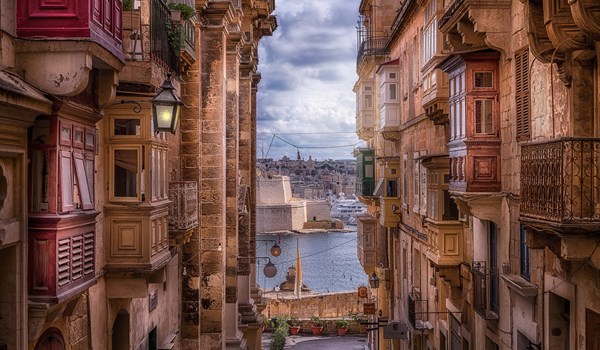Malta is at the centre of a brewing crisis with the European Union as it remains the last member state to operate the controversial “golden passport” scheme.
This program allows foreigners to effectively purchase an EU citizenship by investing at least €690,000 (£577,840).
The practice has drawn intense criticism from Brussels due to concerns over security, money laundering, and the integrity of an EU citizenship.
Despite pressure from the European Commission, which has urged Malta to terminate the program, a legal opinion issued on October 4 by Advocate General Anthony Collins for the Court of Justice of the European Union may provide a legal reprieve.
In his non-binding report, Collins said that citizenship decisions rest solely with individual member states.
He wrote: “Member States have decided that it is for each of them alone to determine who is entitled to be one of their nationals and, as a consequence, who is an EU citizen.”
This interpretation has caused tension within the EU, with the Commission arguing that Malta’s golden passport scheme undermines the bloc’s principles of “sincere cooperation and security”.
The European Commission launched legal action two years ago, taking Malta to court over its investor citizenship program, accusing it of violating EU laws.
Daily Life In Brussels
Daily Life In Brussels
© Getty
The Commission has argued that granting citizenship without any genuine link to the member state is incompatible with the values of the Union.
In 2022, the EU Justice Commissioner Didier Reynders said: “EU values are not for sale.”
Nonetheless, the sale of passports has proven a big hit for Malta, generating around £670 million between 2014 and 2020.
Related video: EU ‘prepared to compromise on youth mobility scheme with UK’ to get deal over the line (Dailymotion)
However, following Russia’s invasion of Ukraine, Malta suspended its scheme for Russian and Belarusian nationals but continues to offer it to other nationalities.
This decision has drawn additional scrutiny from the EU, which seeks tighter regulations on similar programs across Europe.
Golden passport programs have been gradually phased out in other EU countries. Cyprus scrapped its scheme in 2020, and Bulgaria followed suit in 2022.
Other member states, such as Portugal and Spain, have revised or scaled back their golden visa programs, which offer residence permits to high-net-worth individuals.
The Court of Justice is expected to issue a ruling soon, which could impact the future of Malta’s citizenship-for-investment scheme.
However, as of now, the Maltese government remains adamant that its policies do not contravene EU treaties.



